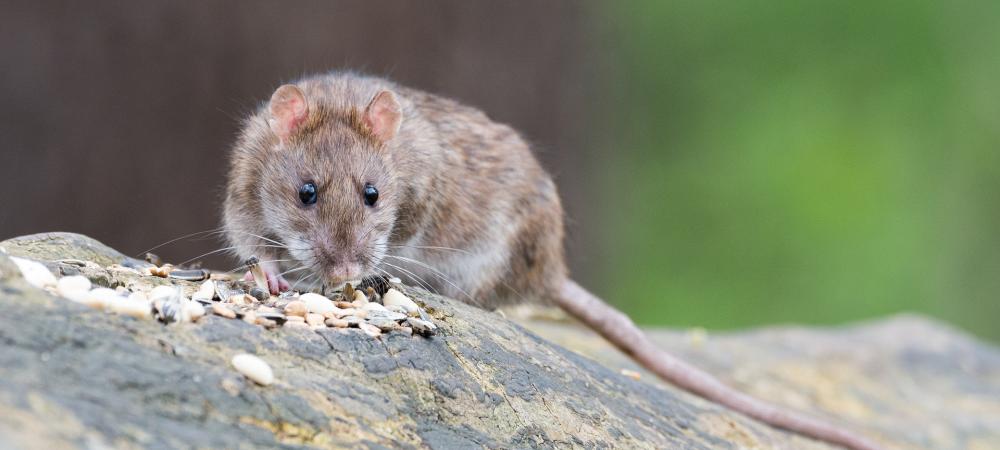Dangers of Rodents in Your Home

Rodents can be a huge nuisance in your home and, if left unchecked, can cause serious damage. Not only can they contaminate food, but they can also chew through furniture and walls, spreading disease and infection.
The most common signs of rodent infestation include droppings, gnaw marks, and tracks in dust or dirt. You may also hear scratching noises coming from within walls or other areas of your home. If you think you have a rodent problem, the best course of action is to contact a professional pest control expert.
Health Risks of a Rodent Infestation
A rodent infestation can pose serious health risks to individuals living in the affected area. From carrying and transmitting diseases to causing allergic reactions, the presence of rodents can lead to various health issues. It is crucial to address and manage a rodent infestation promptly to minimize the potential health risks and ensure the well-being of those in the vicinity. Below are some of the common health risks associated with a rodent infestation and ways to mitigate them.
Diseases and Illnesses
Mice infestations can pose serious health risks to humans, as they can transmit various diseases. Hantavirus is a potentially deadly disease spread through contact with infected mice, their droppings, or urine. Symptoms include fever, muscle aches, shortness of breath, and can progress to severe respiratory illness. Salmonella is another disease commonly associated with mice infestations, transmitted through contaminated food or surfaces with mice feces. Symptoms include diarrhea, fever, and abdominal cramps. Lymphocytic Choriomeningitis is a viral disease spread through inhalation or ingestion of particles contaminated with mice urine, droppings, or saliva. Symptoms include fever, headache, muscle aches, and can progress to brain inflammation and meningitis. It is important to seek prompt medical attention if symptoms develop after exposure to mice infestations, as these diseases can have serious implications for human health. Proper pest control measures and maintaining a clean and hygienic environment are crucial for preventing these diseases.
Allergies
Managing allergic reactions to rodents requires taking practical measures to minimize exposure to allergens. Regularly cleaning and vacuuming areas where rodents congregate, such as basements, attics, and crawl spaces, can help reduce the buildup of allergens like dander and urine. Using air purifiers equipped with HEPA filters can also help to reduce airborne allergens in the home. Additionally, keeping rodents confined to specific areas of the home, such as keeping them out of bedrooms and other commonly used spaces, can help minimize exposure.
It is important to consult with a healthcare professional, especially for individuals with severe allergic reactions or respiratory issues like allergy-related asthma. A healthcare professional can provide guidance on managing symptoms, prescribe medications such as antihistamines or inhalers, and recommend other measures to reduce allergen exposure. In severe cases, allergen immunotherapy may be considered to desensitize the individual to rodent allergens.
By implementing these practical measures and seeking guidance from a healthcare professional when needed, individuals can effectively manage allergic reactions to rodents and improve their overall quality of life.
Food Contamination
Food contamination by rodents such as rats and mice poses significant risks to both public health and financial well-being. These pests can easily gain access to food storage areas through small openings, cracks, and gaps in buildings. Once inside, they can contaminate food with their urine, feces, and hair, as well as by gnawing on packaging and containers. This contamination can result in the spread of dangerous bacteria and diseases such as salmonella, E. coli, and leptospirosis.
Allowing rodents to access food storage areas can have serious health implications for consumers who may unknowingly consume contaminated food, leading to foodborne illnesses and potential hospitalization. In addition to the health risks, food contamination by rodents can also result in significant financial burdens for food businesses and homeowners, due to costly food recalls, loss of stock, and damage to property. It is important to implement effective rodent control measures to prevent their access to food storage areas and minimize the risks of contamination.
Damage to Your Home
Your home is a place of comfort, security, and safety, but unexpected events such as natural disasters, accidents, or unforeseen damage can threaten that. Understanding the potential damage that can occur to your home and how to prevent and handle it is crucial in ensuring the longevity and integrity of your living space. From water damage to fire damage, this guide will explore the common types of damage that can affect your home and provide you with valuable insights on how to mitigate the risks and protect your property from harm.
Fire Risk
Rodents in the home pose a potential fire risk due to their tendency to chew on electrical wires and build nests in flammable materials. The gnawing behavior of rodents, such as mice and rats, can damage insulation and expose wires, increasing the likelihood of electrical malfunctions and potentially igniting fires. Furthermore, the nesting materials, such as paper, fabric, and dried vegetation, can serve as fuel for a fire if ignited.
To prevent fires caused by rodents, it is important to seal off entry points around the home to prevent their access. Keeping the home clean and clutter-free can also reduce nesting opportunities for rodents. Additionally, storing food in airtight containers and promptly cleaning up any spills or crumbs can help deter rodents from taking up residence in the home. Regularly inspecting electrical wiring for signs of damage and addressing any issues promptly can also reduce the risk of electrical malfunctions caused by rodents.
By taking proactive steps to prevent rodent infestations and addressing potential fire risks, households can significantly reduce the hazard posed by rodents chewing on electrical wires and building nests in flammable materials.
Weaken the Home's Structure
Rodents in the home can also weaken the structure of a building over time. These pests are capable of gnawing through walls, insulation, and wiring in search of food or nesting material. The resulting damage can compromise the structural integrity of a building, leaving it vulnerable to further weather-related damages such as water intrusion and mold growth.
Odor
Odor is another issue that can be caused by rodents. The presence of these pests in the home can lead to an unpleasant odor, as they produce and leave behind droppings and urine that emit a musty smell. This smell will become more pungent the longer the rodents are present, as their waste accumulates. This noxious odor can quickly spread throughout the home and cause discomfort for occupants.
